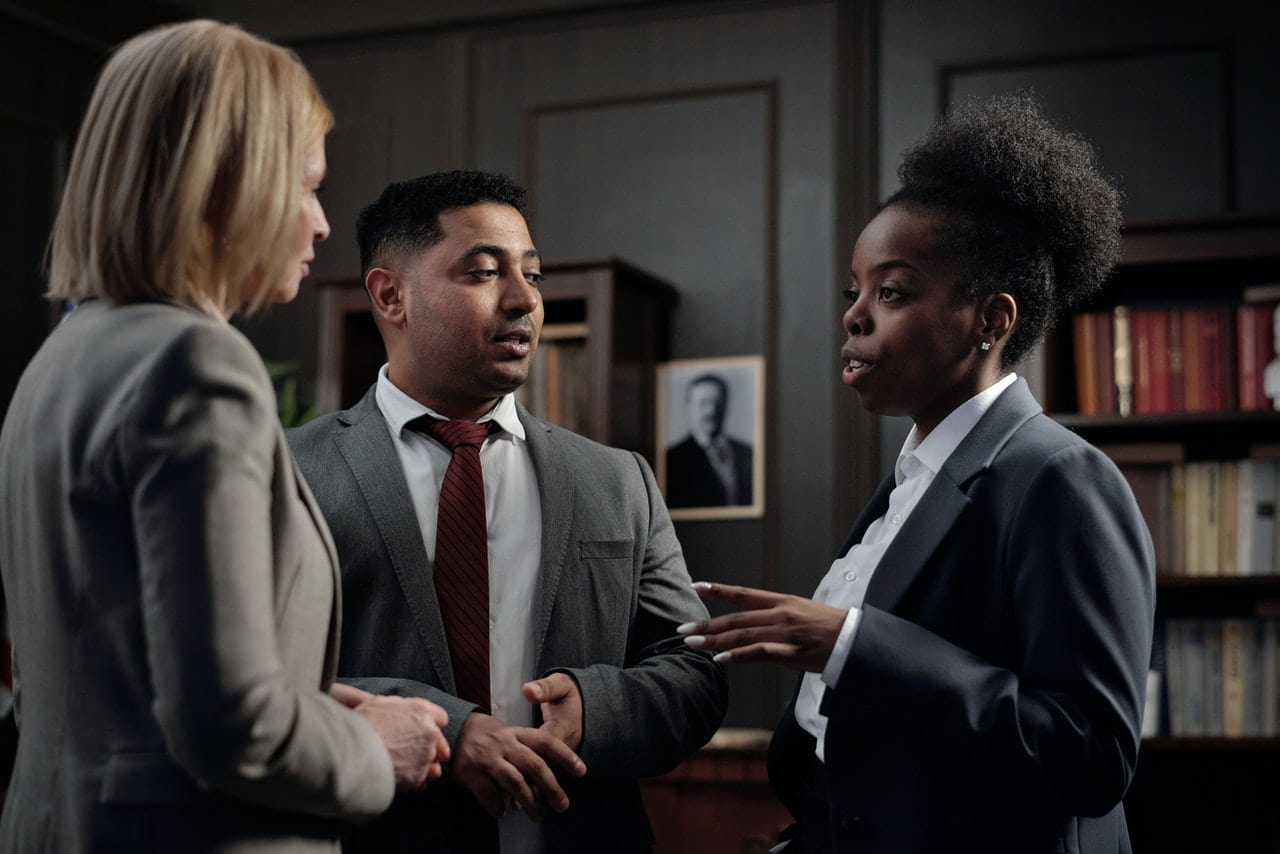Many people wonder about the ways relationships are formed and kept strong in our modern world, and one question that often comes up, quite naturally, is about polyamory. It is, you know, a way of building connections that involves more than just two people, and it often sparks a lot of curiosity. Folks frequently ask if polyamorous relationships are legal, and that's a really good question to think about as we talk about how these connections actually work.
So, while the legal side of things can feel a bit tangled and different from one place to another, this particular discussion is going to focus on what these sorts of relationships are truly like, day to day. We'll be looking at the real experiences and dynamics that shape them, rather than getting too caught up in the specific laws, as that's what we have details about to share with you.
Actually, our aim here is to give you a clearer picture of polyamorous relationships themselves – how they can be healthy, what makes them tick, and some of the things that make them a bit of a challenge. It's about getting to grips with the core principles that help these connections grow and flourish, much like any other deep personal bond, really.
Table of Contents
- What Does Polyamory Really Mean?
- How Can Polyamorous Relationships Be Healthy?
- What Are the Foundations of Polyamory?
- Where Do Polyamorous Relationships Begin?
- What Challenges Do Polyamorous Relationships Face?
- Are Polyamorous Relationships Legal - What We Focus On Here
- How Do People Learn About Polyamory?
- Getting Started - Are Polyamorous Relationships Legal - And What Comes Next?
What Does Polyamory Really Mean?
To really get a good sense of polyamory, it helps to start with a basic idea of what it is. You know, it's about having intimate or romantic connections with more than one person at the same time, and these connections are open and honest. It’s not about keeping secrets, but rather about everyone involved knowing about the other people and being okay with the way things are set up. This way of living often means building deep, loving bonds that are shared with multiple individuals, all with everyone's full awareness and agreement, which is pretty central to the whole thing.
These sorts of relationships, it's worth noting, can take on many different shapes and sizes. There isn't just one single way for them to look. Usually, though, they involve having romantic or sexual connections, or sometimes both, with several different people. It's a broad term that covers a lot of ground, actually, and the specific ways people arrange their connections can be quite varied. For example, some setups might involve a central partnership with other connections branching out, while others might be more like a network where everyone is connected to everyone else in different ways, kind of like a web of feelings and shared experiences.
And when it comes to who can be polyamorous, well, that's pretty wide open too. People who choose this path can have any sexual orientation you can think of. It doesn't matter if someone is straight, gay, bisexual, or anything else; polyamory is about the structure of the relationship itself, not about who someone is attracted to. So, you might find polyamorous folks from all walks of life, with all sorts of attractions, which really speaks to how inclusive this relationship style can be, in a way. It's a very personal choice about how one wants to experience connection and affection, and it really is open to almost anyone.
- Purple Shampoo On Grey Hair Before And After
- Dripping Black
- Jeans Popular In The 90s
- Jamie Fosters
- Seth Rogen Laughing
How Can Polyamorous Relationships Be Healthy?
Just like relationships where people only have one romantic partner, polyamorous connections can be quite healthy and bring a lot of joy. It really just depends on the specific things that are happening and how the people involved behave with each other. There isn't a single magic formula, of course, but the way folks treat one another and the situations they find themselves in play a huge part in how well these relationships thrive. It's a lot about the daily interactions and choices, you know, that truly shape the overall feeling and strength of the connection, just like any other bond.
One of the really nice things that can come from a polyamorous relationship is the chance for people to talk about their concerns and feelings with more than just one partner. This can be super helpful, actually. Having several people to chat with about issues can sometimes help smooth things over and make the relationship more steady. It's like having a few different viewpoints or sounding boards, which can often lead to better ways of handling disagreements or difficult moments. This can, in fact, help calm things down and reduce the number of big problems that pop up, making the whole arrangement feel more solid and secure, which is pretty neat.
So, having these multiple channels for discussion can mean that when a little bump in the road appears, there are more opportunities for it to be worked through. It might mean that feelings get heard from different angles, or that solutions come about that wouldn't have been obvious otherwise. This ability to share and get input from various loving sources can really make a difference in keeping things balanced and happy for everyone involved. It's a unique aspect that, some would say, offers a special kind of emotional cushioning, you know, for the people who are part of it.
What Are the Foundations of Polyamory?
At the heart of polyamorous relationships, there are some very important ideas that guide how people interact. These connections really put a lot of value on talking openly and honestly, showing deep respect for everyone involved, and making sure everyone gives their clear agreement for what happens. These aren't just nice-to-haves; they are, in fact, the absolute bedrock upon which everything else is built. Without these core elements, it's pretty hard for any polyamorous connection to truly stand on its own two feet and grow in a good way.
This way of living, you know, genuinely asks for a great deal of effort from everyone. It's not something that just happens by itself. People need to put in the time and energy to really communicate their feelings, their desires, and their limits. They also need to listen with an open mind to what others are saying, even when it might be a bit uncomfortable. It's a continuous process of learning and adjusting, and it certainly asks for a lot of emotional work and self-awareness from each person involved, which can be quite demanding, to be honest.
Think about it like this: open and honest communication means really saying what's on your mind, even the tricky stuff, and doing it in a way that others can hear. It's about being brave enough to be vulnerable and clear about your own needs, but also about being kind and thoughtful when hearing about the needs of others. Mutual respect, on the other hand, is about truly valuing each person's feelings, their time, their other connections, and their right to make their own choices. It means seeing everyone as a whole person with their own life and dreams, which is pretty fundamental.
And consent, well, that's about making sure everyone is truly on board with everything that happens, not just at the start, but all the time. It's an ongoing conversation, where agreement is given freely and can be taken back at any point. This means checking in regularly, making sure everyone still feels good about the choices being made, and being ready to change things if someone's feelings shift. It's a very active kind of agreement, you know, that keeps everyone feeling safe and valued within the connections, and it's a huge part of what makes polyamory work well for people.
Where Do Polyamorous Relationships Begin?
It's interesting to consider how polyamorous relationships actually get started, because there isn't just one path. Many of these connections, for example, began with people already intending to have multiple partners from the very first moment. They might have met others who were also looking for a similar kind of connection, or they might have simply decided this was the right way for them to live and then sought out people who shared that outlook. So, in some respects, for some folks, polyamory is the initial idea, the starting point for their romantic lives, which is pretty straightforward.
On the other hand, quite a few polyamorous relationships actually began as what we might call more traditional, committed partnerships involving just two people. Then, over time, one of those partners, perhaps, expressed a very strong wish to open things up. This could mean bringing in new romantic connections for one or both people, or it might mean exploring different ways to expand the existing bond. This process of opening up usually involves a lot of discussion, a bit of nervousness, and a genuine desire to grow the relationship in a new direction, which can be a big step for anyone involved, really.
So, whether a relationship starts out with the intention of being polyamorous or evolves into it later, the key is that everyone involved is aware and agrees to the arrangement. It’s not something that just happens by accident or without conversation. The journey from a two-person bond to a multi-partner one, for instance, often requires a great deal of honesty and courage from everyone, as they talk about their feelings and what they hope for the future. It’s a very deliberate choice, you know, that shapes the very nature of the connection.
What Challenges Do Polyamorous Relationships Face?
While polyamorous relationships can bring a lot of good things, it’s also fair to say that they come with their own set of challenges. These connections, you know, genuinely ask for a lot from the people in them. They demand a high level of openness, a strong sense of trust, really good communication abilities, very clear boundaries, and a deep, shared respect among all the partners. If any of these elements are missing or not well-developed, things can get a bit tricky, which is pretty typical for any relationship, but perhaps even more so when more people are involved.
Openness, for instance, means being able to talk about difficult feelings, like jealousy or insecurity, without fear of judgment. It also means being transparent about where you are going, who you are spending time with, and what your feelings are. Trust is about believing that your partners will act with kindness and honesty, even when you're not around, and that they will honor the agreements you've made together. This can be a big ask for some people, naturally, as it requires a lot of faith in others.
Good communication abilities are, quite simply, non-negotiable. This means not just talking, but truly listening, asking clarifying questions, and expressing yourself in ways that can be heard and understood. It’s about having those sometimes tough conversations regularly, and making sure everyone feels heard and valued. Clear boundaries, too, are super important. These are the agreed-upon limits and rules that everyone feels comfortable with, and they help define what is okay and what is not. They help keep everyone feeling safe and respected, which is a very important part of making these connections work, you know.
And then there's mutual respect, which means honoring each person’s feelings, choices, and other connections. It means valuing their autonomy and understanding that they have their own needs and desires, just like you do. All of these things together mean that polyamorous relationships aren't just easy-breezy; they require a continuous effort and a real commitment to working through things. It's a very active kind of love, you might say, that keeps everyone feeling connected and cared for, and it certainly asks for a lot of personal growth from everyone involved.
Are Polyamorous Relationships Legal - What We Focus On Here
When people ask "are polyamorous relationships legal," it's a very valid question, and one that often comes up. However, the information we have here doesn't really go into the specific legal standing of these relationships in different places. Instead, our focus is much more on the everyday workings of polyamory, what it means for the people living it, and how they make it successful. We're looking at the human side of things, you know, rather than the legal documents.
What we do know is that polyamorous relationships, instead of being focused around just one pair of people, are often made up of a sort of connected group of sexual and romantic partners. It’s more like a web or a network, where different people are linked in various ways, rather than a single, isolated unit. This structure means that trust, agreement, and honest conversations are absolutely key for everyone involved. It’s what holds the whole arrangement together, basically.
Every single person who is part of the connection knows about the other partners, and they all agree to how things are set up. This open knowledge and shared agreement are what make these relationships different from others that might involve secrecy or deceit. It’s about full transparency and a shared commitment to the overall well-being of the group, which is a big part of what makes these connections feel secure for everyone, you know. So, while the legal question of "are polyamorous relationships legal" is important, our discussion centers on the practical, day-to-day realities and the human connections involved.
How Do People Learn About Polyamory?
For anyone who is curious about polyamory, or perhaps thinking about trying it out, there are ways to learn about how it all works. You can discover some very important principles, pick up helpful tips, and build skills that are needed for polyamory. It's like getting a friendly, easy-to-get-your-head-around guide that helps you figure out how to build healthy, open connections


